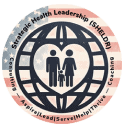Blip-Zip Executive Summary
AI in healthcare promises revolution, but ethical concerns loom large. One of my previous articles talked about the 8 Must have AI-Skills. This article explains why and explores navigating the ethical maze of AI, addressing biases, privacy, and opaque decision-making. Leaders must equip their workforce and embrace responsible implementation to unlock AI’s potential for better, more equitable healthcare.
Blip-Zip Takeaways
- Train your workforce to identify and address ethical challenges in AI healthcare.
- Embrace human-centric AI that complements, not replaces, human expertise.
- Prioritize transparency and accountability to build trust in AI-powered healthcare.
Top 5 Keywords/Themes
Ethical AI, AI In Healthcare, Healthcare Leadership, Bias In AI, Transparency In AI, Leadership, Bias Mitigation, Transparent AI, Responsible AI
Table of Contents
Introduction To The Challenges of Ethical-AI
The revolutionary potential of artificial intelligence (AI) is driving a paradigm shift in the health and human services industry, which is currently in the process of taking place. This disruptive technology will revolutionize preventive care, improve patient engagement, and optimize clinical decision-making. It can do this by providing intelligent chatbots that respond to patient inquiries and algorithms powered by artificial intelligence that predict disease outbreaks.
While the USG “Blueprint for an AI Bill of Rights” outlines ethical-AI development and deployment principles, leaders must follow through. Nevertheless, amid the excitement surrounding artificial intelligence’s potential, important questions concerning its ethical implications emerge. When navigating the complex maze of artificial intelligence-powered healthcare, it is of the utmost importance for responsible leadership at the strategic level to ensure that ethical considerations, safety, and equity are taken into account.
An Explanation of the Ethical-AI Minefield
Imagine that a judge makes important decisions based on flawed evidence or that a map app drives you down a dangerous path due to biased data. Both of these scenarios are possible. If ethical-AI is not implemented responsibly, artificial intelligence has the potential to perpetuate biases and injustices. This is precisely the concern that arises with AI. Skewed training data can give rise to algorithmic bias, resulting in discriminatory outcomes in areas such as patient interpretation or resource distribution.
Furthermore, significant privacy concerns are raised by the vast amounts of personal health data collected by AI systems. This sensitive information must be protected at all costs in today’s digital technology. Furthermore, opaque decision-making processes, in which the reasoning behind AI-driven recommendations must be made clear, can potentially undermine trust and transparency within the healthcare ecosystem.
The Five Most Important Training Topics for Ethical-AI
The foundation of ethical AI lies in the fair and unbiased training of AI systems. Discriminatory algorithms can inadvertently favor certain groups based on ethnicity, age, medical conditions, and other factors. AI developers must train their tools using diverse datasets to mitigate biases, ensuring comprehensive and prejudice-free recommendations.
Initiatives by Google and IBM exemplify this approach, demonstrating how AI training datasets can be examined and refined to eliminate unfair algorithmic decision-making.
To successfully navigate the ethical-AI landscape of artificial intelligence, you must equip your workforce with the knowledge and skills appropriate for the task. For your consideration, here are five crucial training topics:
- Demystification: To demystify the fundamentals of artificial intelligence, we will break down the jargon, explain the core concepts of AI, and investigate the various applications of AI in different healthcare settings.
- How to Find Your Way Through the Ethical Maze: Prepare your team to locate and address any potential biases, privacy risks, and ethical dilemmas arising from implementing artificial intelligence.
- Regulatory Requirements for Data Governance and Security: You should provide your staff with training on responsible data collection, storage, and security practices to protect the privacy of patients and ensure that you comply with the applicable regulations.
- Transparency and the ability to fully explain: Strengthening Trust: To foster trust and accountability within the healthcare system, promoting an understanding of how artificial intelligence systems arrive at their decisions is essential.
- Embrace Workflow Changes: Your team should be prepared to transition to AI-integrated workflows by addressing concerns and fostering collaboration. Change management and effective communication are two essential aspects of this transition.
Achieving equity in healthcare AI extends beyond data diversity. It involves collaboration with experts who can proactively address potential biases and ensure safe platform utilization. Rigorous monitoring, adherence to intended use cases, and independent certification of AI platforms’ safety are paramount. Moreover, incorporating human operators in decision-making processes is essential to counter the unforeseen effects of AI failures.
5 Leadership Strategies to Get Past Ethical-AI Hurdles
Recognizing the urgency of the matter, the Office of Science and Technology Policy has introduced a “USG Blueprint for an AI Bill of Rights.” This blueprint acknowledges the immense potential and the risks associated with AI technologies. It emphasizes principles that guide the design, deployment, and use of AI systems, safeguarding civic rights and promoting ethical, unbiased development.
You play a crucial part in navigating the ethical complexities of artificial intelligence in the healthcare industry because you are a strategic leader. To overcome these challenges, the following five strategies are most important:
- Adopt a Human-Centered Approach: Make sure that artificial intelligence will supplement human expertise rather than replace it. Human judgment and oversight should be given priority in essential decision-making processes.
- Embrace Diversity and Inclusion: Promote diversity and inclusion by ely involving a wide range of stakeholders in developing and implementing artificial intelligence to reduce bias and guarantee that all patients will receive equitable outcomes.
- Promote Transparency: Transparency and open communication should be encouraged. To build trust with stakeholders, it is important to encourage open dialogue about ethical concerns and provide active solutions to these concerns through clear communication strategies.
- Support Governance: Invest in Data Governance That Is Dependable: To ensure data privacy, data security, and responsible use of patient information, it is necessary to implement robust data governance frameworks.
- Constantly Engage in Continuous Monitoring and Evaluation: Regularly evaluate the impact that artificial intelligence has had on your organization, identifying and addressing any unintended consequences or ethical concerns that may have presented themselves.
The Influence of Ethical-AI on Health and Human Services
Artificial intelligence has the potential to improve the delivery of health and human services and the outcomes for patients if it is implemented responsibly. Consider the possibility of AI-powered tools serving as intelligent assistants to medical professionals, enabling them to diagnose diseases earlier, personalize treatment plans, and maximize the utilization of available resources.
Patients can reap the benefits of chatbots powered by artificial intelligence that provide health information and support around the clock or wearable devices that monitor their health and offer personalized recommendations.
Summary and Conclusion
Artificial intelligence has a significant potential to revolutionize healthcare; however, ethical, safety and equity concerns must take precedence. Leaders can successfully navigate the moral maze of artificial intelligence (AI) and unlock its potential to provide better and more equitable healthcare for all by providing their workforce with the necessary tools, adopting a human-centric approach, and fostering transparency.
Our collective responsibility as leaders in the healthcare industry is to ensure that artificial intelligence is implemented responsibly and ethically. Let’s have an open conversation, discuss the best practices that have been implemented, and collaborate to create a future in which artificial intelligence will empower healthcare professionals and improve patients’ lives worldwide.
This article has explored the complexities of navigating ethical considerations in AI-powered healthcare. To further your understanding and equip yourself for responsible leadership in this evolving landscape, we offer deep-dive discussion questions, professional development activities, and relevant resources for further exploration.
Deep Dive Discussion Questions
- Consider a potential AI application in healthcare. How could you identify and mitigate potential biases in its development and implementation?
- What strategies would you employ to foster transparency and build trust with stakeholders regarding AI-driven decisions in healthcare?
- As a leader, how can you champion diversity and inclusion throughout the AI development process to ensure equitable outcomes for all patients?
Professional Development and Learning Activities:
- Participate in workshops or online courses on ethical AI development and implementation in healthcare.
- Engage in discussions with colleagues and experts to explore diverse perspectives on ethical AI challenges and solutions.
- Conduct a self-assessment of your organization’s preparedness for responsible AI adoption in healthcare.
References, Resources, Citations
- Brookings Institution: The Malicious Use of Artificial Intelligence: Forecasting, Prevention, and Mitigation: https://arxiv.org/pdf/1802.07228
- The White House: Blueprint for an AI Bill of Rights: https://www.whitehouse.gov/ostp/ai-bill-of-rights/
- Center for Democracy & Technology: https://cdt.org/
- Partnership on AI: https://partnershiponai.org/
- The Algorithmic Justice League: https://www.ajl.org/
- Harvard Business Review: How to Lead in the Age of AI: https://hbr.org/insight-center/the-age-of-ai
- European Commission: https://digital-strategy.ec.europa.eu/en/policies/artificial-intelligence
- The Ethics of Artificial Intelligence in Healthcare – HITRUST Alliance: https://hitrustalliance.net/the-ethics-of-ai-in-healthcare/
- The National Institute of Standards and Technology (NIST): https://www.nist.gov/ Nature: The State of AI Ethics: https://www.nature.com/articles/s42256-022-00598-x
Other SHELDR Articles You Might Like
https://sheldr.com/6-chatgpt-magic-prompts-to-catapult-you-and-your-team-from-great-2-greater/Insert Links
SHELDR Archives
- October 2025
- July 2025
- May 2025
- April 2025
- December 2024
- November 2024
- October 2024
- September 2024
- August 2024
- July 2024
- June 2024
- May 2024
- April 2024
- March 2024
- February 2024
- January 2024
- August 2023
About the Author
I am passionate about making health a national strategic imperative, transforming and integrating health and human services sectors to be more responsive, and leveraging the social drivers and determinants of health (SDOH) to create healthier, wealthier, and more resilient individuals, families, and communities. I specialize in coaching managers and leaders on initial development, continuously improving, or sustaining their Strategic Health Leadership (SHELDR) competencies to thrive in an era to solve wicked health problems and artificial intelligence (AI).
Visit https://SHELDR.COM or contact me for more BLIP-ZIP SHELDR advice, coaching, and consulting. Check out my publications: Health Systems Thinking: A Primer and Systems Thinking for Health Organizations, Leadership, and Policy: Think Globally, Act Locally. You can follow his thoughts on LinkedIn and X Twitter: @Doug_Anderson57 and Flipboard E-Mag: Strategic Health Leadership (SHELDR)
Disclosure and Disclaimer: Douglas E. Anderson has no relevant financial relationships with commercial interests to disclose. The author’s opinions are his own and do not represent an official position of any organization including those he consulted. Any publications, commercial products, or services mentioned in his publications are for recommendations only and do not indicate an endorsement. All non-disclosure agreements (NDA) apply.
References: All references or citations will be provided upon request. Not responsible for broken or outdated links, however, report broken links to [email protected]




